
Kevin McCarthy Had a Good Laugh About George Santos' Reelection Campaign on 'FOX & Friends'
VIDEO: Kevin McCarthy says George Santos should not run for reelection.
2023-06-26 22:48
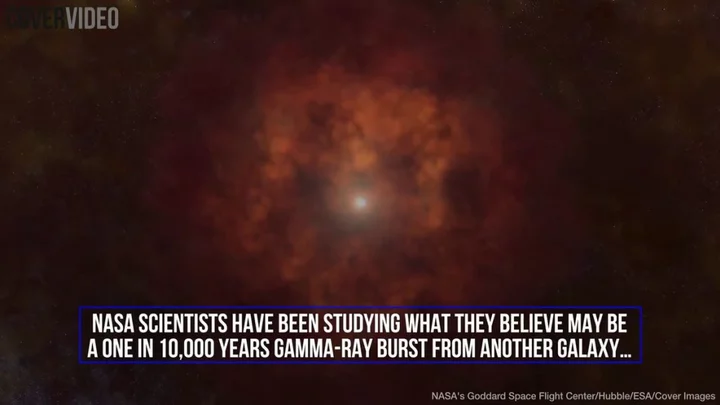
Astronomers discover a totally new way that stars can die
Astronomers have discovered a new way that stars can die. In a study published in the journal Nature Astronomy, experts have worked out that a minute-long gamma-ray burst of light, which occured in 2019 and evidence a star dying, happened because stars collided within the densely crowded environment near the supermassive black hole at the centre of an ancient galaxy. Normally gamma-ray bursts (GRB) last around two seconds and happen when stars collapse. “For every hundred events that fit into the traditional classification scheme of gamma-ray bursts, there is at least one oddball that throws us for a loop,” said study coauthor Wen-fai Fong, assistant professor of physics and astronomy at Northwestern University’s Weinberg College of Arts and Sciences, in a statement. “However, it is these oddballs that tell us the most about the spectacular diversity of explosions that the universe is capable of.” Over time, astronomers have observed three main ways that stars can die, depending on their size. Lower mass stars like our sun shed their outer layers as they age, eventually becoming dead white dwarf stars. Sign up to our free Indy100 weekly newsletter Massive stars burn through the fuel-like elements at their core and shatter in explosions called supernovas. Doing so can leave behind dense remnants like neutron stars or result in the creation of black holes. A third form of star death results when neutron stars or black holes begin to orbit one another in a binary system and spiral closer to one another until they collide and explode. But the new observation suggests a fourth type of death. “Our results show that stars can meet their demise in some of the densest regions of the universe, where they can be driven to collide,” said lead study author Andrew Levan, an astrophysics professor at Radboud University in Nijmegen, Netherlands, in a statement. “This is exciting for understanding how stars die and for answering other questions, such as what unexpected sources might create gravitational waves that we could detect on Earth.” “The lack of a supernova accompanying the long GRB 191019A tells us that this burst is not a typical massive star collapse,” said study coauthor Jillian Rastinejad, a doctoral student of astronomy at Northwestern, in a statement. “The location of GRB 191019A, embedded in the nucleus of the host galaxy, teases a predicted but not yet evidenced theory for how gravitational-wave emitting sources might form.” “While this event is the first of its kind to be discovered, it’s possible there are more out there that are hidden by the large amounts of dust close to their galaxies,” said Fong, who is also a member of the Center for Interdisciplinary Exploration and Research in Astrophysics at Northwestern. “Indeed, if this long-duration event came from merging compact objects, it contributes to the growing population of GRBs that defies our traditional classifications.” You learn something new every day. Have your say in our news democracy. Click the upvote icon at the top of the page to help raise this article through the indy100 rankings.
2023-06-26 19:27
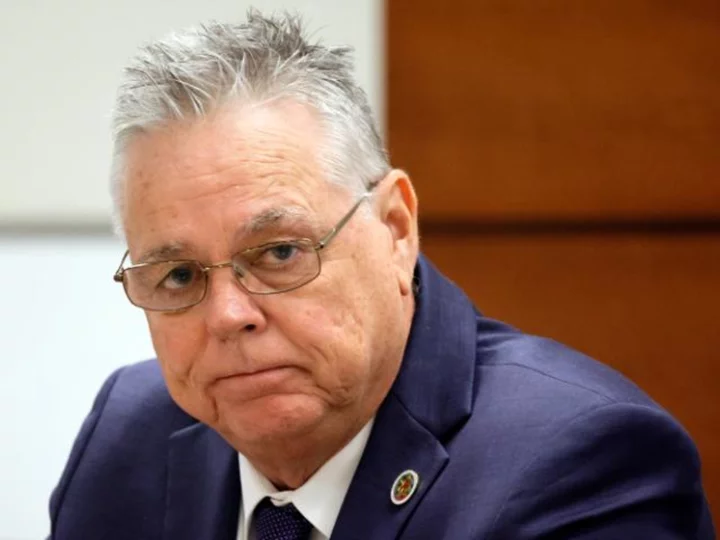
Jury set to hear closing arguments in trial of ex-school resource officer who stayed outside during Parkland shooting
Closing arguments are expected Monday in the trial of a former school resource officer who stayed outside during the February 2018 shooting at a Parkland, Florida, high school, in which 17 people were killed and 17 others wounded.
2023-06-26 18:20
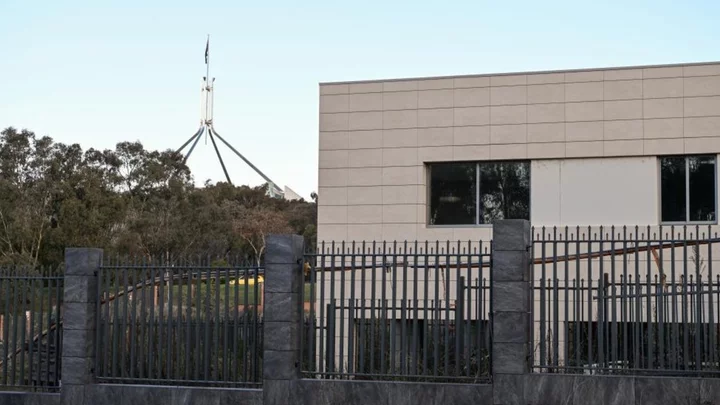
Russia loses bid to hold onto embassy site near Australia parliament
Canberra cancelled Moscow's lease on a plot of land near parliament citing national security risks.
2023-06-26 15:57

Barack Obama: Row in India over former US president's remarks on Muslim rights
Mr Obama said last week that India may "start pulling apart" if minority rights weren't protected.
2023-06-26 14:22
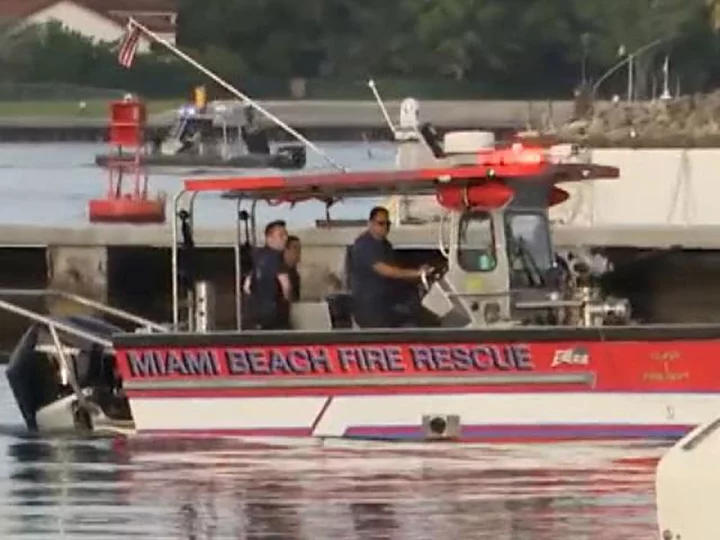
Boat hits Fisher Island Ferry near Miami, killing one man and hospitalizing another
A man was killed and another was hospitalized after a 30-foot boat hit the Fisher Island Ferry near Miami early Sunday morning, the US Coast Guard said.
2023-06-26 07:27
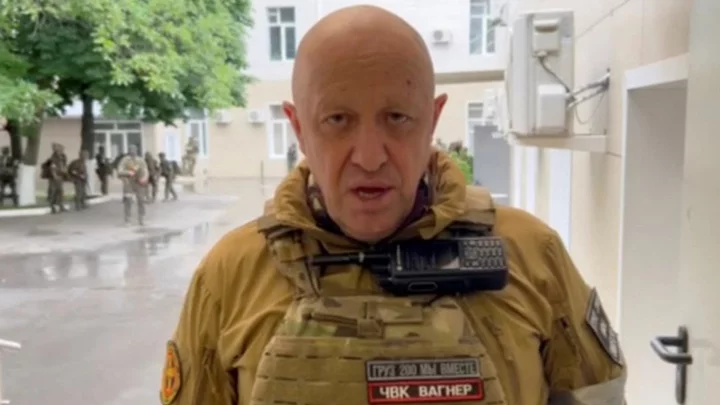
Wagner, Prigozhin, Putin and Shoigu: Bitter rivalries that led to a rebellion
The Wagner mutiny was years in the making, as Russia's system of competing powers finally collapsed.
2023-06-26 00:55

Mark Rylance says he initially took a ‘distilled garlic solution’ instead of Covid vaccine
Mark Rylance has revealed “alarm bells” rang for him when the British population was encouraged to get the Covid vaccine in 2021. In a new interview, Rylance, 63, said he wasn’t convinced he needed the vaccine, adding that “science started to sound like religion” during the pandemic. Speaking to The Sunday Times, the Dunkirk star explained he relied on taking a “very distilled garlic solution”, along with vitamin C. “And I sailed through Jerusalem,” he said. Rylance reprised one of his most well-known roles, as Johnny “Rooster” Byron, in last year’s revival of the 2009 Jez Butterworth play Jerusalem. He told the publication he finally took the Covid vaccine when he travelled to visit his father in the US. Rylance’s comments were made in the context of his forthcoming play Dr Semmelweis, based on the life of maverick Hungarian doctor Ignaz Semmelweis. The British actor reportedly wrote Dr Semmelweis with playwright Stephen Brown before the pandemic began. Rylance said he was researching alternative cancer treatments at the time, adding that he’s sceptical about the effects of chemotherapy. He recalled how a friend allegedly “broke up the cells of a tumour” by using the vibrations from a Tibetan sound bowl. Rylance added: “The body knows how to heal itself. “We don’t need to go in and bombard it with poison. It’s like bombing a city to try and get rid of a little sect of terrorists. You may wipe them all out, but you’re going to breed 25 or 30 [more].” Earlier this month, Rylance revealed that his brother, Jonathan Waters, had died in a cycling accident, aged 60. “I am so sorry to tell you that on the 28 May, my dear brother Jonathan Waters was knocked from his bicycle and tragically died of his injuries,” the statement read. Rylance, who was very close to Waters, said the loss made him question the point of life. “It just makes everything that follows a little bleak. But also that hollowness can be a positive thing, a kind of grail or cup or vessel,” he continued. Rylance also said he believes in life after death, adding: “I think you really can have a very healthy conversation with a soul who has passed over.” The actor said he has spoken to his late grandmother and step-daughter Nataasha van Kampen, using a medium. He admitted that while his views may not be conventional or mainstream, but “don’t cause any harm”. Dr Semmelweis opens at the West End this Thursday 27 June. Read More Billy Nomates asks BBC to take down Glastonbury footage after wave of ‘personal abuse’ Guns N’ Roses review, Glastonbury 2023: Frontrunners for the worst Glasto headline set of all time Wes Anderson took a cast of stars to the Spanish desert and made his best film in years Too cool to love these acts 10 years ago? This year’s Glastonbury is for you Yellowstone creator Taylor Sheridan breaks silence on Kevin Costner’s dramatic exit
2023-06-25 21:47

Pope offers prayers to family of 'Vatican girl' who went missing 40 years ago
VATICAN CITY Pope Francis on Sunday offered prayers and solidarity to the family of a Vatican schoolgirl who
2023-06-25 20:29

Scientists have come up with a new meaning of life – and it's pretty mind-blowing
The meaning of life is the ultimate mystery – why do we exist? And is there a point to… well… anything? These are questions to which we may never find answers, but at least we can define what “life” means in scientific terms. And yet, our understanding of what life is is changing all the time, thanks to space exploration. As scientists continue to hunt for life beyond our own world, biologists are having to rethink the meaning of the word “life” itself. Sign up for our free Indy100 weekly newsletter Generally, biologists explain “life” as connoting a self-sustaining chemical system which is capable of performing functions such as eating, metabolising, excreting, breathing, moving, growing, reproducing, and responding to external stimuli. This definition works pretty well here on Earth (although there are some important exceptions, such as viruses), but experts have pointed out that if life exists elsewhere in the universe, it may not display the same properties that we’re used to. Indeed, it might be unrecognisable as life as we know it (forget those little green men). In which case, how will we spot it if it ever crosses our path? Astrobiologist Sara Imari Walker and chemist Lee Cronin think they’ve come up with a solution. The pair are now arguing that highly complex molecules found in all living creatures can’t exist thanks purely to chance. Therefore, they say, the universe must have a way of creating and reproducing complex information and retaining a “memory” of all of this.. In an interview with New Scientist, Walker, of Arizona State University, explained their radical idea on how objects come into existence. The concept, known as Assembly Theory, explains why certain complex objects have become more abundant than others by considering their histories. If the theory proves correct, it will redefine what we mean by “living” things and show that we’ve been going about the search for extraterrestrial life all wrong. In the process, we could even end up creating alien life in a laboratory, she stressed. In her discussion with New Scientist, Walker pointed out: "An electron can be made anywhere in the universe and has no history. You are also a fundamental object, but with a lot of historical dependency. You might want to cite your age counting back to when you were born, but parts of you are billions of years older. "From this perspective, we should think of ourselves as lineages of propagating information that temporarily finds itself aggregated in an individual." Assembly theory predicts that molecules produced by biological processes must be more complex than those produced by non-biological processes, as Science Alert notes. To test this, Walker and her team analysed a range of organic and inorganic compounds from around the world and outer space, including E. coli bacteria, urine, meteorites and even home-brewed beer. They then smashed up the compounds into smaller pieces and used mass spectrometry to pinpoint their molecular building blocks. They calculated that the smallest number of steps required to reassemble each compound from these building blocks was 15. And whilst some compounds from living systems needed fewer than 15 assembly steps, no inorganic compounds made it above this threshold. "Our system … allows us to search the universe agnostically for evidence of what life does rather than attempting to define what life is," Walker, Cronin, and others wrote in a 2021 Nature Communications article. The handy thing about this building block system – which they’ve dubbed the “'molecular assembly index” – is that it doesn’t rely on carbon-based organic materials to be identified. In other words, an alien could be made of entirely different stuff entirely and we’d still be able to spot it as life using the index. It also works regardless of what stage of “life” an extraterrestrial being is in – whether it is still in its infancy or has moved into a technological stage beyond our understanding. That’s because all of these states produce complex molecules which couldn’t exist in the absence of a living system. If all of this is hurting your head, let’s just get back to the basics: if there is a secret to life, it might all be down to what we do, not what we are. Have your say in our news democracy. Click the upvote icon at the top of the page to help raise this article through the indy100 rankings.
2023-06-25 19:50

Heartbeat sensors on shopping trolleys 'could save lives', new study suggests
New findings have suggested that adding sensors to supermarket trolleys could save people’s lives. Scientists investigated whether installing electrocardiogram (ECG) sensors – designed to check the heart’s rhythm – on the handles of supermarket, trolleys could identify shoppers with atrial fibrillation, which causes an irregular and often abnormally fast heart rate. The sensors would detect heart conditions that put them at increased risk of stroke. The researchers said that over the course of two months, they identified 39 people who were unaware that they had the condition. Ian Jones, professor of cardiovascular nursing at Liverpool John Moores University, who led the study, said: “That’s 39 people at greater risk of stroke who received a cardiologist appointment.” He added: “This study shows the potential of taking health checks to the masses without disrupting daily routines.” It is estimated that around 1.5 million people in the UK have atrial fibrillation, contributing to one in five strokes. The condition is treatable, but at least another 270,000 people in the UK remain undiagnosed and unaware, according to the British Heart Foundation. Sign up for our free Indy100 weekly newsletter There are wearable devices that can also spot irregular heartbeat but this would also require people to take responsibility and wear the device. Professor Jones said: “Nearly two-thirds of the shoppers we approached were happy to use a trolley, and the vast majority of those who declined were in a rush rather than wary of being monitored. “This shows that the concept is acceptable to most people and worth testing in a larger study.” He added: “Checking for atrial fibrillation while people do their regular shopping holds promise for preventing strokes and saving lives. “A crucial aspect is providing immediate access to a health professional who can explain the findings and refer patients on for confirmatory tests and medication if needed.” The findings were presented at ACNAP 2023 conference organised by the European Society of Cardiology (ESC). Have your say in our news democracy. Click the upvote icon at the top of the page to help raise this article through the indy100 rankings.
2023-06-25 16:46

Horse 'left to die' is now prize-winning show pony
Irish police found Woody lying, exhausted, across a pavement in County Tipperary last year.
2023-06-25 14:17
